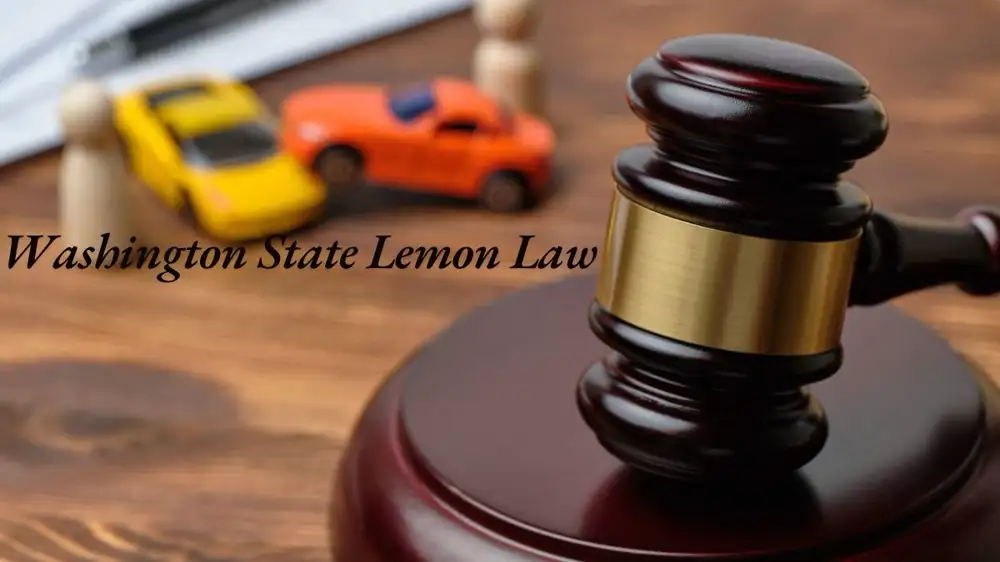Law
Sohagi Law Group: Serving the City of Pasadena with Expertise and Compassion
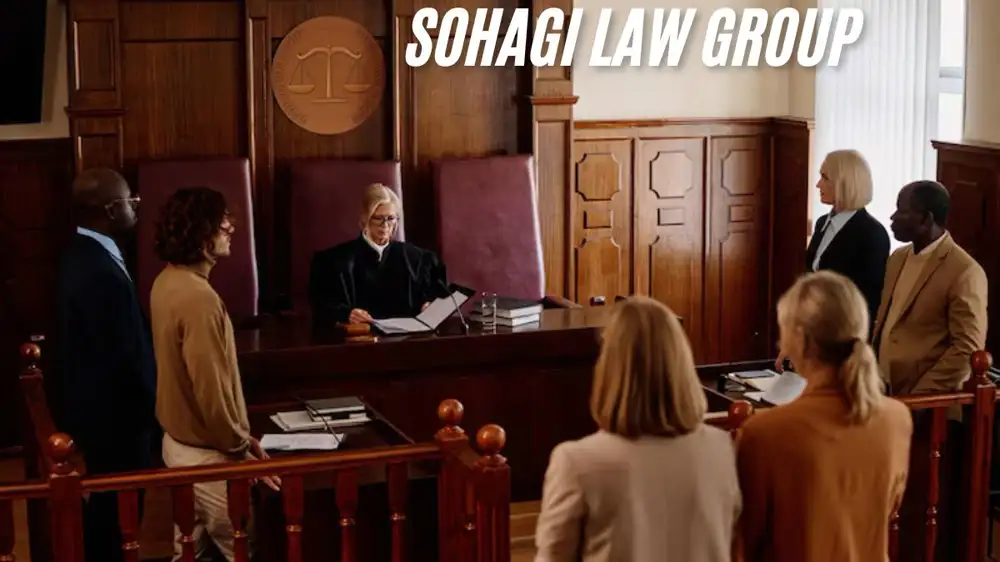
Selecting the best legal counsel can be crucial if you’re experiencing legal difficulties in Pasadena, California. It’s critical to have a law company that understands your needs and provides committed help while handling real estate issues, personal injury claims, or business problems. Sohagi Law Group is one such legal practice that has established a stellar reputation in the City of Caltech. This firm has established itself as a reliable source for legal services in Arcadia thanks to its years of knowledge and commitment to client success.
What sets Sohagi Law Group in the City of Alhambra apart will be discussed in this article. You will learn why this firm is a great option for anybody in the area in need of legal aid, from its skilled lawyers and wide range of practice areas to its dedication to providing personal client care.
About Sohagi Law Group: A Trusted Pasadena Firm
Located in Pasadena, a city in California, Sohagi Law Group is a respected legal practice. The firm provides a broad variety of legal services to businesses and people in the city and the surrounding areas. Sohagi Law Group’s method of practicing law, which combines legal knowledge with a profound comprehension of client needs and a human touch, differentiates them from other firms.
The Founders and Team
A team of experienced attorneys founded Sohagi Law Group, bringing a proven track record in various areas of law. They dedicate themselves to delivering results and advocating for their clients, which is evident in every case they handle. The team combines high skill with a genuine care for the well-being of their clients.
Each attorney at the firm has extensive experience in their respective practice areas, whether it’s real estate law, personal injury law, business law, or civil litigation. They work collaboratively, bringing diverse perspectives and insights to each case, ensuring that clients receive the best possible representation.
Mission and Values
Sohagi Law Group’s mission is simple: to provide high-quality legal services with integrity, respect, and professionalism. Their core values include:
- Commitment to Client Success: They aim to deliver favorable outcomes for clients, always prioritizing their best interests.
- Expert Legal Guidance: The firm offers knowledgeable advice and strong representation backed by years of experience.
- Personalized Attention: Each client’s needs are unique, and Sohagi Law Group takes the time to listen and understand every case thoroughly.
These values are reflected in the firm’s approach to legal practice and have helped establish it as a trusted name in Pasadena.
Practice Areas of Sohagi Law Group
Sohagi Law Group serves a wide range of legal needs in Pasadena, California. Below are some of the primary practice areas where the firm excels:
1. Real Estate Law
Real estate transactions can be complicated and sometimes contentious. Whether you’re buying, selling, leasing, or dealing with a property dispute, it’s absolutely essential to have a legal expert by your side. In fact, having professional legal support can make all the difference, ensuring that you navigate each process smoothly and avoid potential pitfalls. Moreover, expert guidance helps you protect your interests and achieve the best possible outcome in any real estate matter. Sohagi Law Group in the City of Pasadena has a robust real estate law practice, advising clients on everything from commercial leases to residential transactions. They help clients navigate complex real estate regulations, resolve disputes, and ensure their investments are protected.
2. Business Law and Corporate Services
Whether you are starting a business, expanding an existing one, or facing legal challenges related to business operations, the attorneys at Sohagi Law Group handle a variety of business law matters with expertise. They assist with:
- Business formation and structuring
- Contracts and agreements
- Business disputes and litigation
- Employment law issues
- Mergers and acquisitions
Their team helps entrepreneurs, startups, and established businesses in Pasadena navigate the complex legal landscape, allowing them to focus on growth and success.
3. Personal Injury Law
Sohagi Law Group is dedicated to helping victims of personal injury. If an accident or someone else’s negligence has injured you, the firm will provide strong legal representation to help you recover compensation for medical bills, lost wages, pain, and suffering. Common personal injury cases include:
- Car accidents
- Slip and falls
- Dog bites
- Workplace injuries
- Product liability
The firm’s attorneys have a history of securing substantial settlements and verdicts for their clients, ensuring that those who have been injured receive the compensation they deserve.
4. Civil Litigation
Civil litigation refers to legal disputes between individuals or businesses that seek monetary damages or specific performance. Sohagi Law Group handles a wide variety of civil litigation matters, including contract disputes, property disputes, employment issues, and more. Their approach is both strategic and comprehensive, aiming to resolve cases as efficiently as possible. Whether through negotiation, mediation, or trial, they carefully consider every option and choose the best course of action. Moreover, they focus on achieving timely resolutions while ensuring that each step aligns with the client’s best interests.
5. Estate Planning and Probate
Planning for the future is crucial, and Sohagi Law Group in the City of Pasadena offers comprehensive estate planning services. The firm helps clients make informed decisions about their assets and carries out their wishes after their passing, whether they need a will, trust, or assistance with probate. Estate planning is an important step for protecting your loved ones and securing your legacy.
Why Choose Sohagi Law Group in the City of Pasadena?
Selecting the right law firm is crucial to achieving a positive outcome in any legal matter. Sohagi Law Group offers several compelling reasons to choose them as your legal partner in Pasadena.
1. Local Expertise with a Global Perspective
As a firm based in Pasadena, Sohagi Law Group has an in-depth understanding of local laws and regulations. They are familiar with the needs and challenges faced by individuals and businesses in the Pasadena area, making them highly effective advocates. However, they also bring a broader perspective, drawing on their experience with cases in various jurisdictions. This combination of local insight and broad expertise makes them an invaluable resource for anyone seeking legal help in Pasadena.
2. Personalized Legal Services
At Sohagi Law Group, every client is treated as an individual, not just a case number. The firm’s attorneys take the time to understand each client’s unique circumstances, goals, and concerns. This allows them to craft tailored strategies that are most likely to achieve a successful outcome.
Their commitment to personalized service is one of the reasons they have built such strong relationships with their clients. Whether you are a first-time client or a long-standing one, you can expect thoughtful, responsive, and individualized attention.
3. Strong Reputation and Track Record
With a history of successful outcomes, Sohagi Law Group has earned a strong reputation in the legal community. Their attorneys are known for their skill, professionalism, and dedication. Many clients have praised the firm for its ability to resolve complex cases efficiently and effectively. The firm’s track record of positive results speaks for itself, and they continue to be a trusted choice for Pasadena residents.
4. Clear Communication and Support
Legal matters can be intimidating, especially when you’re not familiar with the jargon or processes involved. Sohagi Law Group is committed to clear and open communication. They explain legal concepts in plain language, ensuring you understand your rights and options at every stage of the process. You can always count on them to be available to answer your questions and offer guidance when you need it most.
5. Commitment to Results
At the end of the day, results matter. Sohagi Law Group is dedicated to achieving the best possible outcome for its clients. Whether through negotiation, settlement, or trial, the firm leverages all available resources and employs a variety of legal strategies to vigorously fight for its clients. In fact, no matter the approach, the firm is committed to exploring every avenue to ensure the best possible outcome. Moreover, by strategically utilizing all options at their disposal, they maximize their clients’ chances of success, leaving no stone unturned in the pursuit of justice. Their team’s strategic approach and attention to detail have resulted in numerous successful cases.
Client Testimonials: The Sohagi Law Group Experience
The best way to understand what makes Sohagi Law Group in the City of Pasadena special is to hear from their clients. Testimonials from satisfied clients speak volumes about the quality of service and results they deliver. Here are a few:
- Client A (Personal Injury): “I was injured in a car accident and didn’t know where to turn. Sohagi Law Group was amazing—they handled everything and ensured I received the compensation I deserved.” The team was supportive and communicated with me every step of the way.”
- Client B (Business Law): “Starting my business was daunting, but Sohagi Law Group guided me through every legal step. They helped me with contracts, trademarks, and more. I trust them completely with all my legal needs.”
- Client C (Real Estate Law): “I had some real estate issues that I couldn’t resolve on my own. The attorneys at Sohagi Law Group were knowledgeable and proactive. They helped me secure the property I wanted without any complications.”
Contact Sohagi Law Group in the City of Pasadena
If you are looking for experienced, compassionate legal representation in Pasadena, look no further than Sohagi Law Group.Their broad range of practice areas, experienced attorneys, and commitment to client success equip them to handle any legal matter you may face.To learn more or schedule a consultation, visit their website or call their office today.
In conclusion, Sohagi Law Group in the City of Pasadena offers a comprehensive and client-focused approach to legal services. With their team of experienced attorneys and a strong commitment to achieving the best possible outcomes, they have earned a reputation as one of Pasadena’s most trusted law firms. Whether you’re dealing with real estate issues, personal injury matters, business law concerns, or estate planning needs, Sohagi Law Group is, without a doubt, the legal partner you can consistently rely on. Furthermore, their expertise spans a wide range of practice areas, ensuring that no matter the challenge, you’ll have dedicated professionals by your side. In addition, their commitment to your success and their deep understanding of the law make them an ideal choice for all your legal needs.
Conclusion
In conclusion, the City of Pasadena’s Sohagi Law Group is a solid and reliable legal partner for people as well as businesses. The firm is prepared to manage a variety of legal issues thanks to a group of very talented lawyers with experience in a wide range of practice areas, such as business law, personal injury, real estate law, and civil lawsuits. Their dedication to offering specific, client-centered service and making sure they give each case the consideration and care it requires is what really makes them stand out.
Sohagi Law Group provides qualified legal representation with a focus on attaining positive results, whether you’re navigating an involved legal case, making future plans, or looking for advice on a business issue. They are a great option for anyone in need of legal services in Pasadena because of their stellar reputation for authority, lucid communication, and commitment to client success.
Sohagi legal Group in the City of Pasadena is a respectable legal firm if you’re searching for one that combines experience, knowledge, and genuine attention to your needs. Get in touch with them right now to find out how their legal team can assist you in overcoming your obstacles and obtaining the finest result for your case.
Law
Above-Ground Pool Laws in Boone, Iowa: Your Complete Guide to Compliance and Safety
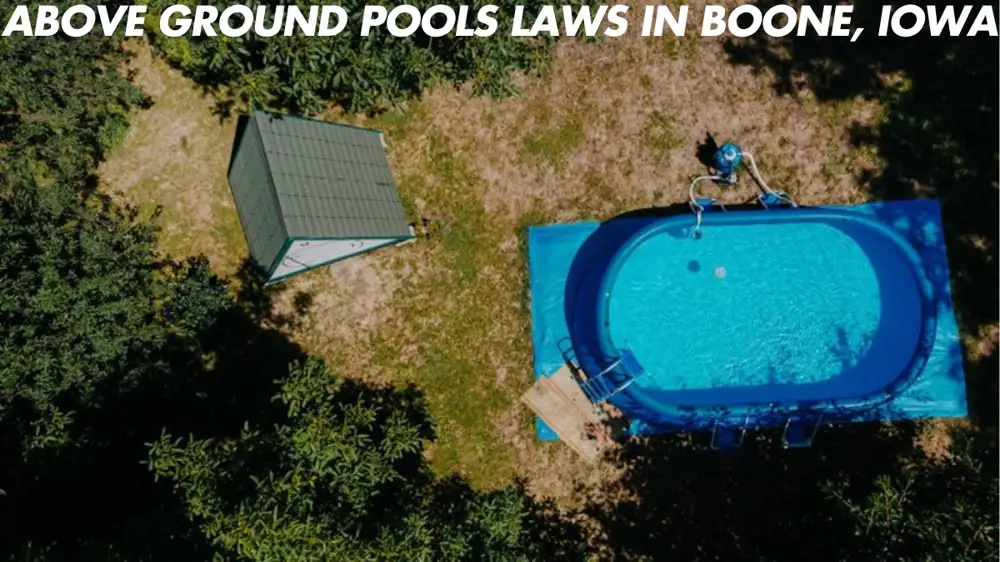
Installing an above-ground pool in Boone, Iowa, is a fantastic way to enjoy the warm Midwest summers. But before you start shopping for pool floats, it’s crucial to understand local laws to avoid fines, safety hazards, or disputes with neighbors. This guide dives deep into above-ground pool laws in Boone, Iowa, providing actionable tips, local resources, and expert advice to ensure your pool setup is safe, legal, and stress-free.
Why Boone Has Laws for Above-Ground Pools
Above-ground pools may seem simple, but they come with responsibilities. Boone’s regulations are designed to:
- Prevent accidents (drowning is the leading cause of death for children under 5).
- Protect property values by ensuring pools don’t encroach on neighbors or create eyesores.
- Manage environmental impact (e.g., proper drainage to prevent flooding).
- Uphold community standards (noise, chemical use, and aesthetics).
By following these rules, you’ll not only stay compliant but also foster goodwill in your neighborhood.
Step 1: Do You Need a Permit? Boone’s Requirements
In Boone, permits are required for most above-ground pools. Here’s how to determine if yours needs one:
Pool Size Thresholds
- Depth: Pools deeper than 24 inches (2 feet) require a permit.
- Volume: If your pool holds 5,000+ gallons of water, a permit is mandatory.
Example: A typical 15-foot round pool with a 48-inch depth holds about 4,978 gallons—just under the limit. But double-check your pool’s specs!
Permanent vs. Temporary Pools
- Permanent pools (e.g., steel-walled or resin frames) always require permits.
- Temporary inflatable pools may not need permits if they’re emptied daily.
How to Apply:
- Visit Boone City Hall (923 8th Street, Boone, IA 50036) or the City of Boone website.
- Submit a Residential Pool Permit Application (including pool dimensions, location, and safety features).
- Pay a 75–150 fee (varies by pool size).
Tip: Processing takes 1–2 weeks. Apply early to avoid summer delays!
Safety Laws: Fences, Alarms, and Covers
Iowa follows the 2009 International Residential Code (IRC) for pool safety, which Boone enforces strictly.
Fencing Requirements
- Height: At least 4 feet tall around the pool area.
- Material: Non-climbable (e.g., wrought iron, vinyl, or wood with vertical slats). Chain-link fences are allowed only if gaps are ≤4 inches.
- Gates: Must be self-closing and self-latching. Latches must be 54 inches high to prevent child access.
Pro Tip: Fences must enclose the entire pool—using your house as a “fourth wall” isn’t allowed in Boone.
Safety Covers and Alarms
- Covers: must support at least 250 lbs (ASTM F1346 standard). Mesh or solid covers are recommended.
- Alarms: Door alarms (for gates) or pool-mounted motion sensors are optional but highly encouraged.
Note: Boone doesn’t currently require alarms, but they’re a smart investment to prevent accidents.
Zoning Laws: Where to Place Your Pool
Boone’s zoning rules ensure pools don’t interfere with utilities, property lines, or public spaces.
Setback Requirements
- Property lines: minimum 10 feet from side and rear boundaries.
- Structures: At least 5 feet from your home, shed, or deck.
- Utilities: Stay 15 feet from overhead power lines and 5 feet from underground gas/sewer lines.
Avoid These Mistakes:
- Placing the pool under trees (falling branches + clogged filters = headaches).
- Blocking sewer access points (city workers need 24/7 entry).
Drainage Rules
- Pool water must drain away from neighbors’ yards to prevent flooding.
- Direct runoff to storm drains or your property’s drainage system (no pooling in streets).
Electrical and Health Codes
Electrical Safety
- Pumps and lights require GFCI outlets (Ground Fault Circuit Interrupters) to prevent electrocution.
- All wiring must comply with the National Electrical Code (NEC). Hire a licensed electrician—DIY work risks fires or code violations.
Health Department Rules
- Water quality: Maintain chlorine levels between 1–3 ppm (parts per million). Test weekly with a kit from Boone’s hardware stores (e.g., Ace Hardware).
- Mosquito control: Stagnant water breeds mosquitoes. Cover the pool when unused or treat with larvicides approved by the Iowa DNR.
Insurance and Liability
Homeowners insurance often doesn’t cover pool-related accidents. Protect yourself:
- Increase liability coverage to at least $500,000.
- Install safety features (fences, covers) to reduce premiums.
- Add an umbrella policy for extra protection.
Did You Know? If someone gets hurt in your pool, Iowa’s “attractive nuisance” doctrine could hold you liable—even if they trespassed.
Consequences of Breaking Boone’s Pool Laws
Ignoring regulations can lead to:
- Fines: 200–1,000 per violation (e.g., missing fence, no permit).
- Pool removal: The city may demand dismantling at your expense.
- Lawsuits: Injured parties could sue for medical bills or trauma.
Pro Tips for Boone Residents
- Talk to Your Neighbors First
Give them a heads-up about your pool plans to avoid disputes over noise or visibility. - Work with Local Pros
Boone-based contractors know the laws inside out. Try:- Above Ground Pool Installers: Iowa Pools & Spas (515-432-1234).
- Electricians: Boone Electric LLC (515-432-5678).
- Keep Records
Save permits, inspection reports, and receipts in a folder. You’ll need these for insurance or resale. - Winterize Properly
Drain and cover your pool by October 15 to meet Boone’s seasonal guidelines.
Frequently Asked Questions
1. Can I install an above-ground pool on a sloped yard in Boone, Iowa?
Answer: Yes, you can install an above-ground pool on a sloped yard, but it requires proper leveling to ensure the pool is stable and safe. You may need to excavate or build a retaining wall to create a flat surface. Boone’s zoning laws may require a permit for significant landscaping changes, so consult the Boone Building & Zoning Department before starting the project.
2. Are there noise restrictions for pool pumps and equipment in Boone?
Answer: While Boone doesn’t have specific noise ordinances for pool equipment, excessive noise from pumps or pool parties could violate general noise regulations. To avoid complaints, place pumps away from neighbors’ property lines and consider using noise-reducing enclosures. Be mindful of quiet hours, typically between 10 PM and 7 AM.
3. Can I use solar panels to heat my above-ground pool in Boone?
Answer: Yes, solar panels are an eco-friendly and cost-effective way to heat your above-ground pool in Boone. Solar heating systems typically don’t require additional permits, but you should ensure the installation complies with local zoning and electrical codes. Consult a licensed contractor to determine the best setup for your pool size and location.
4. What are the rules for pool lighting in Boone, Iowa?
Answer: Pool lighting must comply with the National Electrical Code (NEC) and Boone’s safety standards. Underwater lights must be low-voltage (12V) and connected to a GFCI outlet. Exterior lighting should not create glare or disturb neighbors. Solar-powered lights are a great option for energy efficiency and ease of installation.
5. Can I build a deck around my above-ground pool in Boone?
Answer: Yes, you can build a deck around your above-ground pool, but it must meet Boone’s zoning and building codes. Decks must have proper railings (at least 36 inches high) and comply with setback requirements (10 feet from property lines). A building permit is required for decks over 30 inches high or attached to your home.
Final Checklist for Boone Pool Owners
✅ Obtain a permit from Boone City Hall.
✅ Install a 4-foot fence with self-latching gate.
✅ Place the pool 10+ feet from property lines.
✅ Hire an electrician for GFCI outlets.
✅ Test water chemistry weekly.
Stay Updated!
Laws can change. For the latest info, contact:
- Boone Building & Zoning Department: 515-432-4216
- Boone City Hall Website: www.boonegov.com/pools
By following Boone’s above-ground pool laws, you’ll create a safe, fun oasis for your family while keeping your neighbors and local authorities happy. Now, grab your swimsuit and enjoy that Iowa sunshine—responsibly! 🌞
Law
Newton’s Third Law Concept Development Practice Page: A Comprehensive Guide
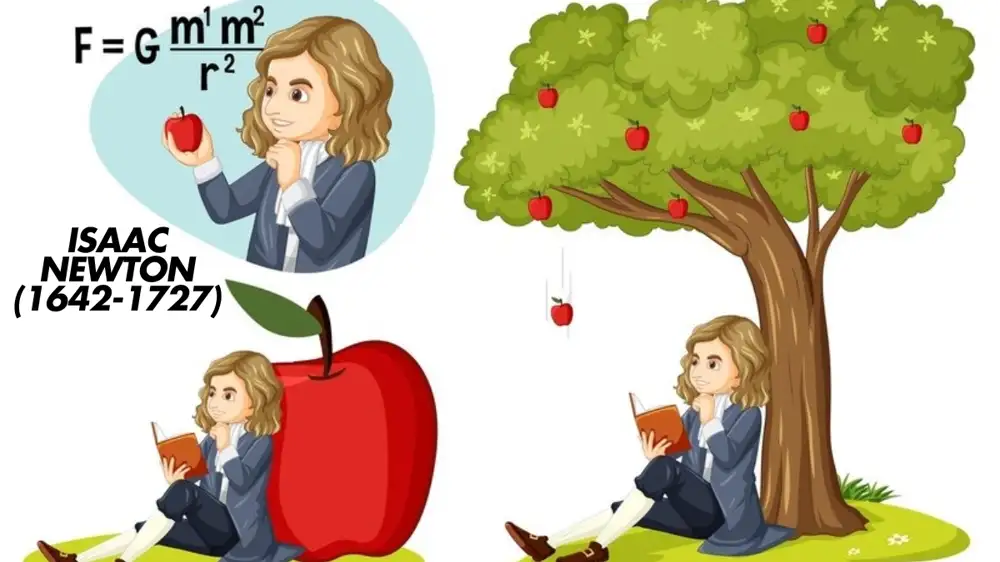
Understanding Newton’s Third Law of Motion is fundamental to grasping how forces interact in the physical world. Often introduced in school science curricula, this law can sometimes be confusing, but with the right practice and explanation, it becomes easier to understand. A well-structured “Newton’s Third Law Concept Development Practice Page” is an excellent resource for learners at various stages of their physics journey.
In this article, we will explore the details of Newton’s Third Law, how to develop your understanding of it, and how a practice page can help solidify the concepts. By the end, you’ll have a clear understanding of the law and how to apply it in different scenarios.
What is Newton’s Third Law?
According to Newton’s Third Law of Motion, there is an equal and opposite reaction to every action.This means that if an object exerts a force on another object, the second object exerts a force of the same magnitude but in the opposite direction on the first object. The forces are always paired, acting on different objects.
Let’s break this down with an example. If you push a book on a table, the force of your push creates a reactionary force from the table. The force of the book pushing back on your hand is equal in magnitude but opposite in direction. Similarly, when a rocket launches, the exhaust gases push downwards, and the rocket is pushed upwards by an equal and opposite force.
Key Points to Remember:
- Forces always come in pairs.
- The forces are equal in magnitude but opposite in direction.
- They act on different objects.
The Importance of Newton’s Third Law
Newton’s Third Law is crucial for understanding how the physical world works. Without it, we wouldn’t be able to explain how objects interact, why things move, or even how vehicles and airplanes are able to operate.
For example:
- Walking: Your feet press against the floor as you move.The ground pushes back with an equal force, which allows you to move forward.
- Swimming: In swimming, when a swimmer pushes against the water, the water pushes back with equal force, propelling the swimmer forward.
- Flying: An airplane’s engines push air backwards, and the equal and opposite reaction propels the airplane forward.
Newton’s Third Law helps us understand these everyday phenomena and more, making it one of the cornerstones of classical mechanics.
What is a Concept Development Practice Page?
A “Newton’s Third Law Concept Development Practice Page” is a study tool designed to help students understand and apply the principles of Newton’s Third Law. It typically includes a variety of exercises that challenge students to think critically and apply their knowledge of the law to real-life situations.
A well-designed practice page often includes the following sections:
- Short Explanation of the Law: A clear and concise overview of Newton’s Third Law.
- Interactive Problems: Practical problems or scenarios where students can apply the law to determine forces, reactions, and outcomes.
- Multiple-Choice Questions: These questions test the student’s understanding of the concept.
- Visuals and Diagrams: Diagrams of forces, motion, and interactions between objects.
- Real-World Examples: Situations or experiments where Newton’s Third Law is evident, helping students connect theory with practice.
Such practice pages are helpful because they guide the learner through different scenarios and allow them to see how the law applies to various situations. By regularly practicing these problems, students can internalize the concept and feel more confident in applying it in both academic and real-world contexts.
Developing an Understanding of Newton’s Third Law: Step by Step
Now that we know what a practice page entails, let’s take a look at how to develop a deep understanding of Newton’s Third Law step by step.
1. Start with Simple Examples
Begin by working through basic, straightforward examples. Take a person standing on the ground, for instance. The force of gravity pulls them downwards (their weight), and the ground exerts an equal and opposite upward force on them (the normal force). These two forces balance each other, and the person remains stationary.
This simple example demonstrates how action and reaction forces are equal and opposite. By understanding such basic situations, learners can more easily move on to more complex scenarios.
2. Explore Action and Reaction Forces in Different Contexts
Once you are comfortable with basic examples, try applying Newton’s Third Law to different contexts. For instance, when a car accelerates, the car’s wheels exert a backward force on the road (action), and the road exerts an equal and opposite forward force on the car (reaction). In this case, the road’s reactionary force helps propel the car forward.
3. Use Diagrams to Visualize Forces
Visual aids are essential when learning Newton’s Third Law. On a concept development practice page, you might encounter diagrams showing forces acting on objects. These diagrams can help illustrate how forces work in pairs and can clarify how to apply the law. For example, when a person pushes a wall, you can draw arrows representing the pushing force and the equal and opposite reaction force.
By visualizing forces through diagrams, learners can better understand the direction and magnitude of the forces at play.
4. Practice Applying the Law to Real-World Scenarios
After becoming familiar with theoretical problems, move on to real-world examples. For example, when you jump off a small boat into the water, the boat moves in the opposite direction. This happens because your body exerts a force on the boat (action), and the boat exerts an equal and opposite force on you (reaction). In practice, this concept explains why certain actions, like jumping off a boat, cause a noticeable movement.
5. Solve Problems with Quantitative Calculations
For students in higher grades or those taking physics, quantitative problems are essential for mastering Newton’s Third Law. These problems might involve calculating the forces involved in a scenario using Newton’s Third Law.
For example, if two ice skaters push off each other, and one has a mass of 50 kg while the other has a mass of 70 kg, you can use the law to calculate how their velocities change when they push off. While this problem involves more complex math, it still relies on the core concept of action and reaction.
Key Questions to Include in Your Practice Page
A well-constructed Newton’s Third Law Concept Development Practice Page should include several types of questions to ensure comprehensive understanding. Below are examples of the types of questions that would appear on a practice page:
1. Multiple-Choice Questions
- Which of the following sums up Newton’s Third Law the best?
- A) There is an equal and opposite reaction to every action.
- B) The faster an object moves, the greater the force exerted.
- C) Objects will continue moving unless a force acts upon them.
- D) All objects fall at the same rate.
2. Short Answer Questions
- A person is standing still on the ground. What is the action and what is the reaction according to Newton’s Third Law?
3. Diagram-Based Questions
- Given a diagram of two objects in contact, identify the action and reaction forces acting between them.
4. Application Questions
- When a rocket launches, how does Newton’s Third Law apply to the rocket and the exhaust gases?
5. Problem-Solving Questions
- Two ice skaters of different masses push off each other. If Skater A has a mass of 55 kg and Skater B has a mass of 70 kg, how would their velocities change after pushing off each other?
Why Regular Practice is Crucial
Like any scientific principle, regular practice is essential for fully understanding and applying Newton’s Third Law. By completing a concept development practice page, students get the chance to apply the law in various scenarios, which strengthens their grasp of the material. The more you practice, the better you will be at identifying action and reaction forces, predicting outcomes, and solving related problems.
The benefits of practicing with a Newton’s Third Law Concept Development Practice Page include:
- Enhanced Problem-Solving Skills: The more you practice, the better you become at identifying the forces at play in a given situation.
- Confidence: With more practice, you gain confidence in applying the law to various real-world situations.
- Improved Understanding: Repetition and exposure to different scenarios deepen your overall understanding of Newton’s Third Law.
5 Essential FAQs on Newton’s Third Law Explained
Here are five commonly asked questions about Newton’s Third Law of Motion, answered concisely to help you better understand the concept and its applications.
1. What does Newton’s Third Law state?
Answer: Newton’s Third Law states that “For every action, there is an equal and opposite reaction.” This means when one object exerts a force on another, the second object exerts a force acting on the first object in the opposite direction but of identical magnitude.
2. How does Newton’s Third Law apply to walking?
Answer: When you walk, your feet push backward against the ground. The ground, in turn, pushes forward with an equal force, propelling you forward. These are the action and reaction forces at work.
3. Does Newton’s Third Law apply to all objects?
Answer: Yes, Newton’s Third Law applies to all objects, regardless of their size or mass. It governs how all forces interact between objects, whether it’s a small pebble or a massive rocket.
4. Why don’t action and reaction forces cancel each other out?
Answer: Action and reaction forces act on different objects, not the same object. They don’t cancel each other out because of this. For example, when you push on a wall, the wall pushes back on you with an equal force, but the forces act on different objects.
5. Can you provide an example of Newton’s Third Law in space?
Answer: In space, rockets launch by expelling exhaust gases backward (action), and the rocket is pushed forward by the equal and opposite reaction of those gases. Even in space, rockets can move because to this idea.
These simple, real-world applications of Newton’s Third Law illustrate its fundamental role in understanding forces and motion.
Conclusion
Newton’s Third Law of Motion is a foundational concept in physics that explains how forces interact between objects. Understanding this principle is essential for explaining everyday phenomena, from walking to rocket launches. A well-designed “Newton’s Third Law Concept Development Practice Page” can significantly aid in grasping the law and applying it to different contexts.
By working through simple examples, using diagrams, solving quantitative problems, and applying the law to real-world scenarios, students can solidify their understanding of action and reaction forces. Regular practice is key to mastering Newton’s Third Law, and a practice page provides the structured environment necessary to facilitate this process.
Incorporating these exercises into your study routine will not only help you excel in physics but also deepen your understanding of the forces that shape the world around you. Whether you’re a student just starting or someone revisiting the topic, practicing with a Newton’s Third Law Concept Development Practice Page is an excellent way to ensure success.
Law
Understanding Washington State Lemon Law: What You Need to Know
-
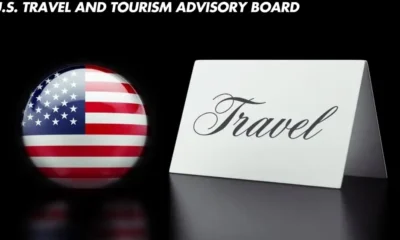
 Travel6 months ago
Travel6 months agoTop 5 Ways Stephen Revetria Elevates the U.S. Travel and Tourism Advisory Board
-

 Crypto7 months ago
Crypto7 months agoUnlock 7 Powerful Cryptocurrency Insights: Delving into NewzNav.com’s Crypto Archives
-

 Technology7 months ago
Technology7 months agoHydrogen Water Machines: Revolutionizing Hydration and Wellness
-

 NEWS & Society7 months ago
NEWS & Society7 months agoChurch of the Holy Spirit News: Events & Impact
-

 Games7 months ago
Games7 months agoDownload Tekken 6 PC: A Comprehensive Resource

